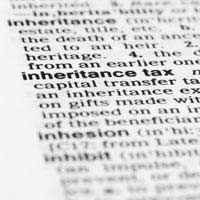Are Discretionary Will Trusts Still Necessary?

Discretionary trusts were, until recently, amongst the most popular trust types available. Their efficiency in reducing Inheritance Tax burdens made them the number one choice for many people with relatively large estates.
Changes to the Inheritance Tax rules have meant that this type of trust has recently declined. But discretionary trusts still have a range of uses, and can be of help in a range of circumstances.
What changed?
Discretionary will trusts were previously used to address a perceived unfairness in the Inheritance Tax (IHT) schedule. Everyone receives a non-taxable allowance for IHT purposes, known as the Nil-Rate Band. This is set at £325,000 for the 2010-11 tax year. Prior to October 2007, unused portions of this allowance went to waste, as they could not be passed onto a spouse. Discretionary trusts were often established in order to make the most of both partners’ Nil-Rate Band.Now, though, unused parts of the Nil-Rate Band can be transferred to the surviving spouse or civil partner. This applies to deaths after 9 October 2007. Many people believed that this important change to the law would render discretionary trusts useless. But this type of trust still has a range of uses.
What is a discretionary trust?
A discretionary trust arrangement is one in which the assets provided to beneficiaries are not fixed in the trust instrument. Instead, criteria are generally given as instructions to the trustees, who will use their discretion to determine how the assets in the trust are disbursed, and to whom.Discretionary trusts are often established to help ensure that dependants are provided for after the death of an individual, particularly when those dependants are too young to make their own financial decisions.
Why might I still use a discretionary trust
Despite the changes to IHT law, there is a range of circumstances in which a discretionary trust might still be useful. This is a particularly flexible type of trust arrangement, and has a range of applications.- Unconventional succession. If you have a particularly complex succession plan, a discretionary trust can provide the flexibility you need. This is particularly useful because you can appoint beneficiaries who have not even been born yet.
- Unforeseen circumstances. Discretionary trusts can help to ensure that your dependents’ financial situation is protected from unforeseen circumstances. Trustees have the freedom to appoint assets and beneficiaries as they see fit, within the criteria set out in the trust instrument.
- Asset growth. If you have assets that you anticipate will grow at a faster rate than the increase in the non-taxable allowance, a discretionary trust can help to mitigate the resulting tax burden. It is worth noting that the allowance has been frozen at £325,000 until 2014-15.
How do I set up a discretionary trust?
Discretionary trusts are often testamentary, and are therefore frequently outlined in an individual’s will. This can be a complex process, and you should always have a solicitor draft the document for you.Discretionary trusts may no longer be necessary for those wishing to reduce their Inheritance Tax burden. But they have a range of other uses, and should not be discounted.


Re: Avoidance of Probate
Hi, the wife and i are thinking of doing a joint will. to leave our assets to one another, to who ever passes first. I take it is…
Re: How to Trace Whereabouts of Trust Funds?
I was involved in a car accident when I was younger and I’m now 18 and I was awarded £3,000 and my parents cannot…
Re: How to Trace Whereabouts of Trust Funds?
I’m trying to locate details of a trust fund which was left by my younger brother with my parents being the…
Re: Revocable and Irrevocable Trusts
I have trust but my step brother went behind my dad back and change the final trust. Now he refuses to tell us if the trust…
Re: How to Trace Whereabouts of Trust Funds?
Hi I am looking for a trust fund,that I think my dad left is half of the house in ,my step mother didn't go into…
Re: Can Conditions Be Put Into Adult Children's Trust Funds?
Hi, can you help. my father was killed in a road accident in October 1966. My grandfather…
Re: Reasons for Establishing a Living Trust
are there any inheritance tax ramifications when creating a 'living trust'.
Re: What is Absolute Entitlement?
My mother’s will has the word absolutely after each beneficiary name. My sister has died since but the estate has been delayed…
Re: Implied and Express Trusts
My father (ZML) and stepmother (JNL) wrote joint wills which each contained a testamentary trust. I was named executor and trustee.…
Re: How to Trace Whereabouts of Trust Funds?
Hello i am trying to locate a trust that i think my mother is hiding from me